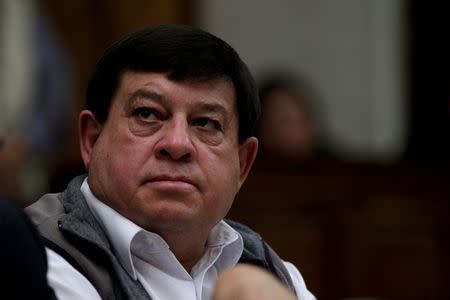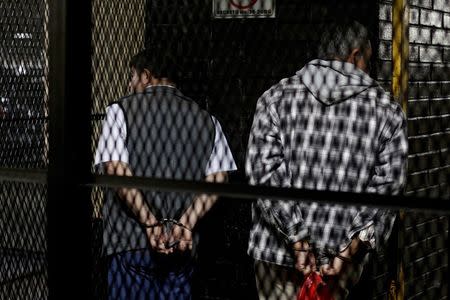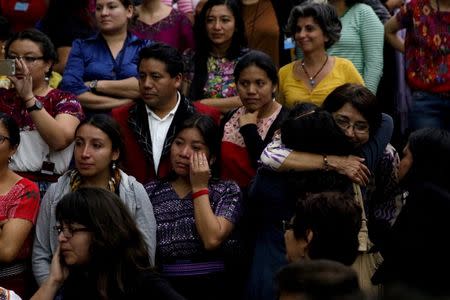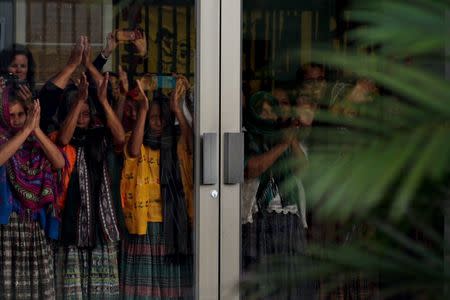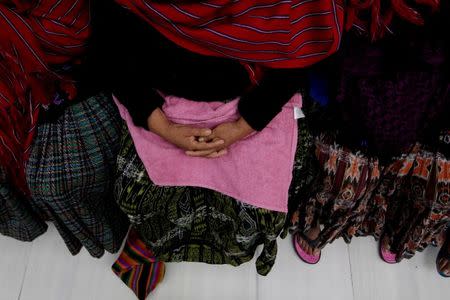Guatemala court orders $1 million in damages to wartime sex slaves
By Anastasia Moloney BOGOTA (Thomson Reuters Foundation) - A Guatemalan court on Wednesday ordered two former military officers convicted of holding indigenous women as sex slaves during the nation's civil war to pay their victims just over $1 million in compensation. The 11 Mayan women, many in their 70s and 80s, testified during the historic trial about being raped at the Sepur Zarco military base, where they were forced to cook and clean for the soldiers. Esteelmer Reyes Giron, a lieutenant colonel, and Heriberto Valdez Asij, a civilian with links to the army, were sentenced last Friday to a total of 360 years in prison for holding the women as sex slaves at the military base as well as murder and forced disappearances dating back to the early 1980s. The court in Guatemala City on Wednesday ordered Reyes, former commander of the base, to pay $65,000 to each victim, and Valdez to pay $32,000 to each victim and to the families of seven men who had disappeared. "We are very happy with today's decision about the reparations awarded and the sentencing of these men," said Carmen, one of victims who testified at court. "It's been a long search for the truth. It's very important for Mayan women to get justice," she told the Thomson Reuters Foundation through a Q'eqchi Mayan language interpreter. About 200,000 people died and 45,000 others disappeared during Guatemala's civil war that lasted from 1960 to 1996. A United Nations-backed Truth Commission set up under the 1996 peace accords concluded that the military was responsible for more than 85 percent of human rights violations during the war, many of them against Mayan Indians. But until now, no members of Guatemala's armed forces had been convicted of wartime rape or ordered to pay compensation to victims of sexual slavery. Paula Barrios, a Guatemalan lawyer involved in bringing the case to trial, said the court also ordered state authorities to build a school, health clinic and give land titles in the names of the victims and also to investigate forced disappearances. The women live in impoverished rural areas in Guatemala's northern highlands. "The issue of education is very important to the women as part of the integral reparations awarded. It means the lives of their daughters can improve," Barrios said. Both of the convicted men deny wrongdoing. "It's certain they will appeal. We are ready to respond," Barrios said. (Reporting by Anastasia Moloney, editing by Ellen Wulfhorst. Please credit the Thomson Reuters Foundation, the charitable arm of Thomson Reuters, that covers humanitarian news, women's rights, trafficking, corruption and climate change. Visit http://news.trust.org)
